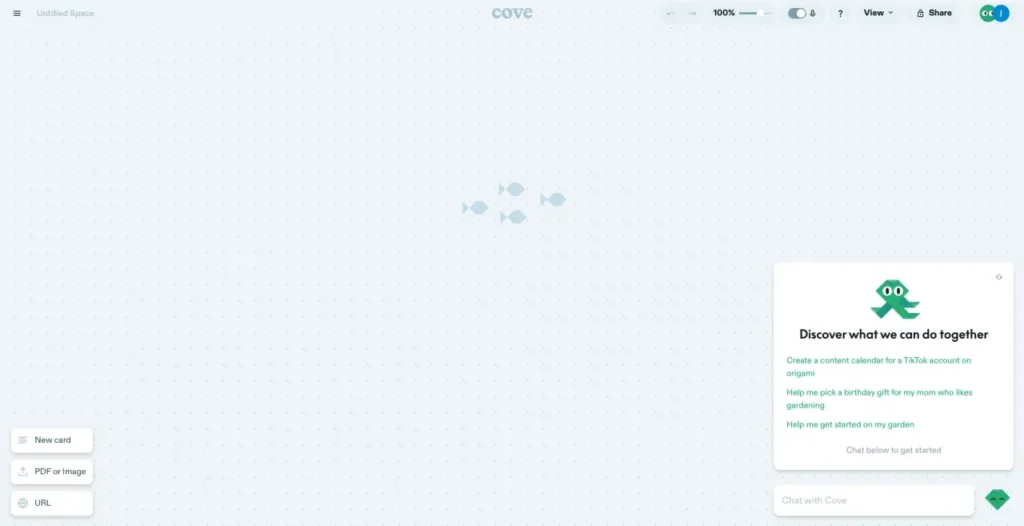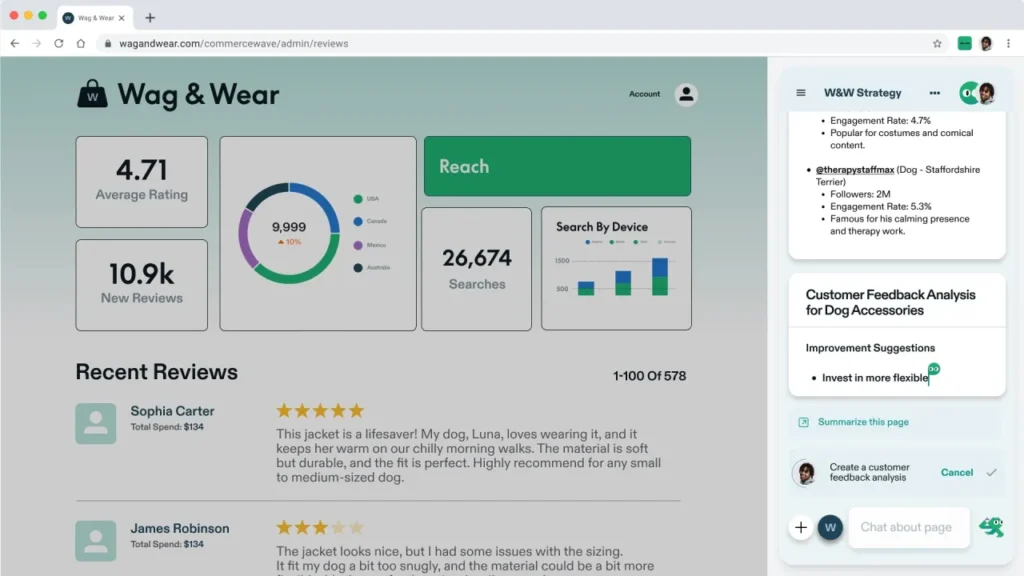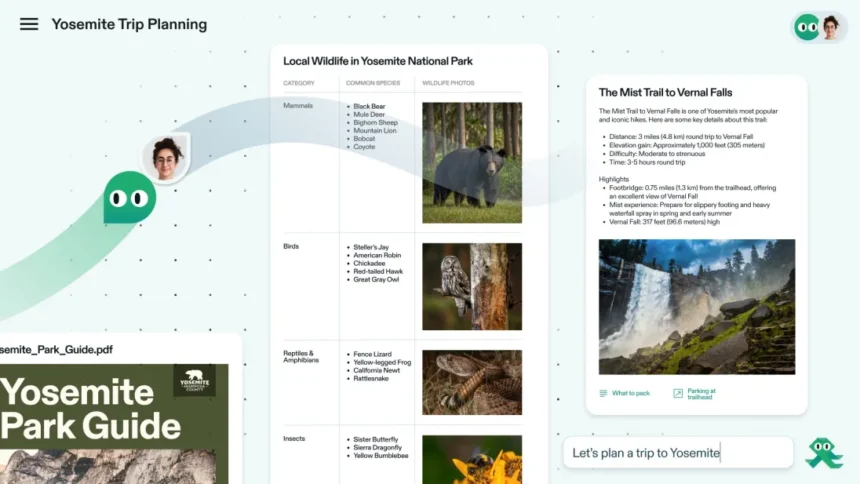When interacting with AI chatbots like ChatGPT, Claude, or Gemini, your conversations tend to be linear, following a strict question-and-answer format. This can become tedious, especially when you’re tackling complex tasks like trip planning, brainstorming, or project management. You often find yourself having to ask follow-up questions, jumping from one topic to another in a scattered fashion—far from an ideal way to organize your thoughts.
A team of former Google Maps engineers has set out to solve this problem with a new tool called Cove, an AI-powered infinite collaboration board. With Cove, users can generate multiple responses to a single query and work across various tasks simultaneously, providing a fluid and dynamic way to manage projects.
Founded by Stephen Chau, Andy Szybalski, and Mike Chu, the startup recently raised $6 million in seed funding from Sequoia Capital, along with notable investors like Elad Gil, Homebrew, Adverb, and industry veterans Scott Belsky and Lenny Rachitsky. The Sequoia lead investor for the round, Jess Lee, previously worked alongside the Cove founders at Google Maps, where they contributed to innovative features like Street View.
A Collaborative Approach to AI: The Inspiration Behind Cove
The founders’ experience at Google Maps and Uber—where both Chau and Szybalski helped launch Uber Eats—inspired them to reimagine how AI could work in collaborative environments. Chau explains that collaboration in human settings is rarely linear. Whether brainstorming or storyboarding, thoughts branch out, evolve, and often become “messy.”
“Thinking is not a straight line,” Chau says. “It’s iterative and complex, with branched-out ideas that build on one another. Cove reflects that natural thought process by creating a shared virtual space, where you can easily build and refine ideas with others, just as you would in a real room with a whiteboard.”
Rather than forcing users into the confines of a typical chatbot’s linear structure, Cove allows them to work with AI in a way that mirrors natural human collaboration. The infinite canvas provides the flexibility to branch off into multiple conversation threads without losing track of context.
The Product: A Dynamic AI Workspace
At its core, Cove offers an infinite digital board combined with a chatbot interface. When you start a project, the bot suggests prompts such as, “Help me choose a birthday gift for my mom, who loves gardening,” or “Help me plan a week-long trip to Yosemite for my family of four.” Once you select a prompt, Cove generates multiple response cards with detailed lists, tables, and actionable insights—far beyond what you’d expect from a typical chatbot.

For example, ask Cove to help with trip planning, and it will create cards for everything from meal prep and packing essentials to activity itineraries and hiking routes. What sets Cove apart is the editable nature of these cards. Users can tweak any part of the content, generate additional spin-off cards, or add elements like new lists, tables, images, or web links.
The platform supports rich media integration, allowing users to upload PDFs, images, or even embed external websites. This flexibility makes Cove not just a tool for planning but a comprehensive collaboration hub. And because it’s cloud-based, you can easily share your board with others, granting either view-only or editing permissions—just like Google Docs.
One of Cove’s standout features is its AI integration, which lets each collaborator invoke the bot independently. This means multiple people can work on the same board simultaneously without disruption, making it ideal for group projects or brainstorming sessions.
Cove also offers a Chrome extension, which enables users to pull content directly from the web into their boards. If you’re browsing a website and need quick input from the AI, you can activate the extension, ask questions, and then seamlessly integrate those answers into your existing projects.

The Market: What Sets Cove Apart
Cove enters a competitive space filled with whiteboarding and collaboration tools like Miro, TLDraw, Kosmik, and Visual Electric (another Sequoia-backed startup). However, the founders believe Cove’s AI-driven features and its ability to generate multi-threaded responses will draw a unique audience.
According to the team, Cove is leveraging various AI models—including ones from OpenAI, Anthropic, Meta’s LLaMA, and Perplexity—to optimize response times and reduce costs. This mix of models ensures that the platform delivers quick, cost-effective results, making it more versatile and scalable.
Challenges and Future Roadmap
Currently, Cove is optimized for desktop use, with a web-based interface that shines on larger screens. While the platform is accessible on mobile devices, the experience is somewhat clunky due to the smaller display size.
Despite these limitations, Cove has already gained traction among early adopters, with users employing the tool for diverse purposes—from home renovation planning and business development to sales growth strategies. The founders themselves have used Cove to manage customer feedback and improve their internal support documentation.
Looking Ahead: The Human Touch in AI Collaboration
In an era where many AI tools focus on automating tasks, Cove positions itself as a thought partner rather than a one-stop solution. “There are products where AI does everything for you, and then there are tools where you do all the work,” explains Sequoia’s Jess Lee. “Cove sits in the middle, designed to act as an assistant that helps guide your thinking process, rather than dictating the outcome.”
Cove’s pricing model is freemium: users can create up to 100 cards for free, while a $10 per month subscription unlocks unlimited cards and early access to new features.
With a vision to revolutionize how people collaborate with AI, the Cove team is just getting started. They aim to push the boundaries of what’s possible in shared digital spaces, making AI a true collaborator in the creative and planning process.
As AI continues to evolve, tools like Cove are paving the way for more intuitive and human-centered interactions, making it easier for individuals and teams to tackle complex projects together.










